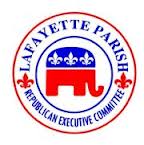
Fast, affordable Internet access for all.


Longmont's City Council and municipal power and communications utility are getting serious about bringing fiber to the people. We reported earlier this month about the decision to allow voters to decide how fast they want that next generation network. Longmont Power and Communications (LPC) already plan to expand the existing network to households and businesses but face a long, slow time table over many years if they expand incrementally without bonding. The City Council will ask voters if they will authorize a $44 million bond issue to pay for capital costs, interest and debt-service reserve.
Many in Longmont recall the ferocious opposition they faced during the two previous referendums. The cable industry (mostly Comcast) spent hundreds of thousands of dollars during each campaign, saturating citizens with a deceitful advertising campaign.
Once again, local citizens are forming their own group to support the measure. A Scott Rochat Longmont Times-Call article reports that the group, Friends of Fiber, recently met in Longmont's TinkerMill "hackserspace" to plan initial strategy. The main take-away for participants was "we need more people."
The group does not want to be taken by surprise by the same astroturf groups that spent $250,000 dollars to defeat the referendum question in 2009. While a second referendum passed in 2011 despite even more astroturf spending, Friends of Fiber are taking no chances and mobilizing now. Both of those referenda dealt with the authority to operate the network, not finance an expansion.
From the article:
[Organizer Scott] Converse said the group had to be ready for just as big a fight now. One tactic will be borrowed from the national political campaigns; creating software that will scan the Internet for negative references to the bond issue so that the group can respond quickly.
Vince Jordan, LPC Telecom Manager, note that the utility has updated the original service offering from $59.95 for 25 Mbps to $49.95 for residential 1 gig service. From the meeting:
Earlier this year we reported on SB 88 in the Kentucky legislature. The bill, sponsored by Republican Senator Paul Hornback and authored by AT&T, would have eliminated the "carrier of last resort" requirement and reduced consumer protections. A similar bill in 2011 was also defeated by a coalition of public interest groups.
This is one of a series of bills crafted by AT&T and ALEC that has been explained in great depth by the National Regulatory Research Institute in their 2012 review [pdf] as well as by Bruce Kushnick in this report [pdf].
Advocates on the side of consumers, including ILSR, were happy to see the bill defeated in the House. Though AT&T will undoubtedly be back again in future years, this victory shows the massive corporate carriers are vulnerable. In addition to blocking harmful deregulation, this is an example of how an organized coalition can protect the public interest.
I spoke with Mimi Pickering, Director of the Appalshop Community Media Initiative in Whitesburg, Kentucky. She described how local groups defeated the bill with the facts. Appalshop teamed up with nonprofit Kentucky Resources Council (KRC), AARP Kentucky, the AFL-CIO, Kentuckians for the Commonwealth, and several other groups. The coalition explained the complexities of the proposal and spelled out what could happen to landline service without consumer protections.
We, the members of the Lafayette Democratic Parish Executive Committee, believe the project will enhance businesses, enrich our lives, and prepare our children for the future. With proper planning, future generations will see profits generated by this project stay in this community and improve businesses and lives for generations to come. Improving local communities has been the traditional purpose of the Democratic Party. With that in mind, we commend City-Parish President Joey Durel for his bold initiative to make this plan a success.A few weeks later, the Lafayette Republican Party endorsed the network [pdf] as well:

...

Without increasing taxes, shall the citizens of the City of Longmont, Colorado, re-establish their City's right to provide all services restricted since 2005 by Title 29, article 27 of the Colorado Revised Statutes, described as "advanced services," "telecommunications services" and "cable television services," including any new and improved high bandwidth services based on future technologies, utilizing community owned infrastructure including but not limited to the existing fiber optic network, either directly or indirectly with public or private sector partners, to potential subscribers that may include telecommunications service providers, residential or commercial users within the City and the service area of the City's electric utility enterprise?
 The results were 60.8% Yes, 39.2% No. 13,238 voted yes whereas 8,529 voted against.
The results were 60.8% Yes, 39.2% No. 13,238 voted yes whereas 8,529 voted against.